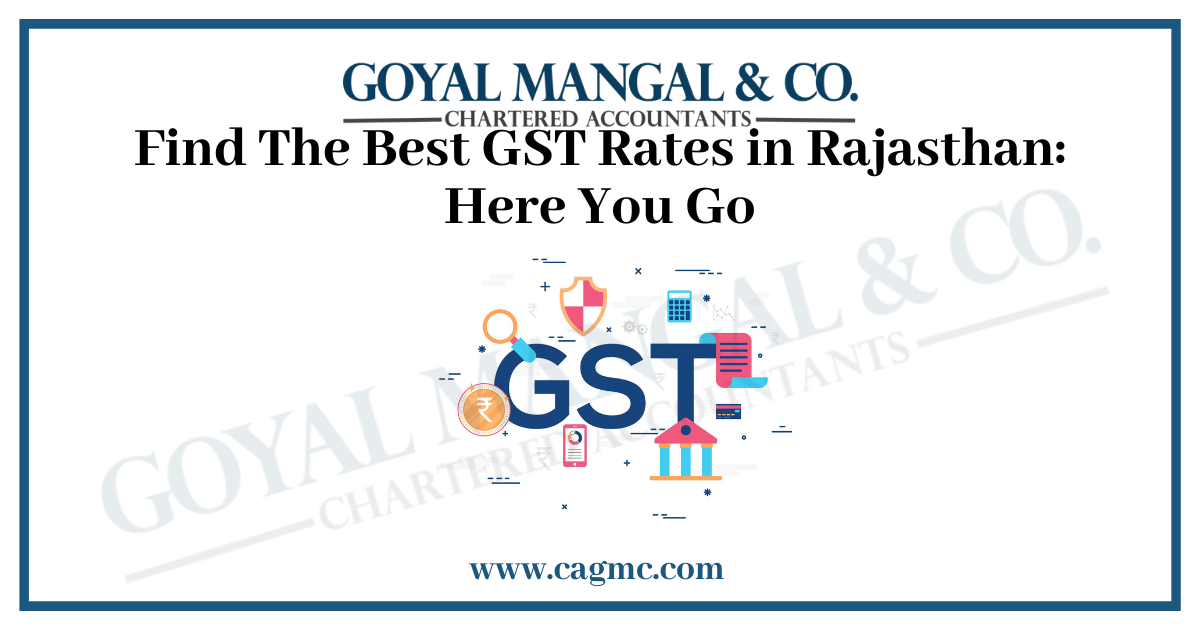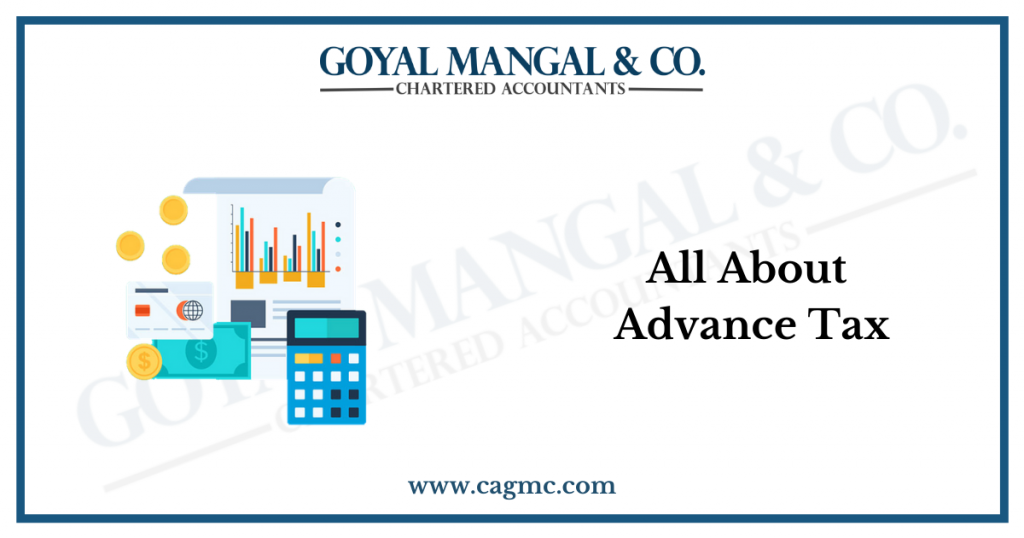
In this article, we will explore the Goods and Services Tax (GST) rates applicable in the state of Rajasthan. GST is a comprehensive indirect tax implemented throughout India to create a unified tax system. The rates are determined by the GST Council, comprising representatives from the central and state governments. Understanding the GST rates in Rajasthan is crucial for businesses, consumers, and the overall economy, as they determine the tax burden and compliance requirements for different goods and services. Join us as we delve into the details of GST rates in Rajasthan and their impact on the economy.
Meaning of GST Rates
GST rates refer to the different tax percentages applied to goods and services under the Goods and Services Tax (GST) system. The GST rates are determined by the GST Council and are categorized into different slabs, such as 5%, 12%, 18%, and 28%. These rates help determine the tax liability and compliance requirements for businesses and consumers. The purpose of GST rates is to create a uniform and simplified tax structure, reducing tax evasion and promoting ease of doing business. The rates have an impact on prices, profitability, and purchasing decisions, affecting various sectors of the economy. The GST HSN code list is divided into seven schedules, each with a different tax rate. Changes in GST rates are made by the GST Council to align with economic conditions and policy objectives. The structure of HSN code that helps to make GST systematic and globally accepted is depicted below.

What is GST Council?
The GST Council is a constitutional body in India responsible for making decisions and recommendations on various aspects of the Goods and Services Tax (GST). It comprises representatives from the central and state governments and plays a crucial role in determining tax rates, exemptions, and other policy matters related to GST. The council meets periodically to discuss and decide on GST-related issues, aiming to ensure uniformity and harmonization in tax policies across the country.
How will GST impact economy of Rajasthan?
The Goods and Services Tax (GST) can have several impacts on the economy of Rajasthan:
- GST streamlines indirect taxes like national excise duty, service tax, and state-level taxes. This tax simplification decreases compliance costs and administrative constraints for Rajasthan enterprises. It improves tax compliance, efficiency, and business ease.
- It can boost state manufacturing and logistics firms’ competitiveness, boosting investment, production, and jobs.
- GST levels the playing ground for SMEs. GST’s composition plan lowers taxes for SMEs with a certain annual turnover. This reduces Rajasthan SMEs’ tax burden, making them more competitive and stimulating growth.
- Rajasthan has a large manufacturing and logistics sector. GST streamlines goods and service movement by removing inter-state obstacles and introducing input tax credits.
- GST compliance encourages firms to join the formal economy. Rajasthan’s revenue base grows from this informal-to-formal change. Increased tax revenues can fund infrastructure, public services, and social welfare, benefiting the economy.
- GST streamlines tax compliance and eliminates tax cascading. Rajasthan attracts domestic and foreign investment. GST also simplifies tax calculation for travellers, increasing tourism in the state.
- GST provides many benefits, but transitioning may be difficult. Businesses must comply with new regulations, use tax filing technologies, and understand new GST rates list and product classifications. Time and good execution can overcome these hurdles, resulting in long-term benefits.
Goods and Services under 0% Rates in Rajasthan
Following are the goods and services under 0% GST Rates in Rajasthan:
- Milk
- Jaggery
- Salt
- Lassi
- Kajal
- Fresh vegetables
- Prasad
- Tender coconut water
- Unbranded & non packed in container: Honey & Paneer
Goods and Services under 5% Rates in Rajasthan
Following are the goods and services under 5% GST Rates in Rajasthan:
- PDS Kerosene
- Coal
- Tea
- Spectacles
- Domestic LPG
- Cashew nuts
- Raisins
- Packed paneer
- Edible vegetable oil
- Agarbatti
- Footwear< Rs. 500
- Milk food for babies
- Apparels< Rs. 500
- Coir mats
- Matting
- Floor covering
- Labelled and pre-packaged paneer, buttermilk, and curd.
Goods and Services under 12% Rates in Rajasthan
Following are the goods and services under 12% GST Rates in Rajasthan:
- Butter
- Ghee
- Almonds
- Mobiles
- Umbrella
- Packed coconut water
- Preparations of vegetables, fruits, nuts, or other parts of plants including pickle murabba, chutney, jam jelly.
Goods and Services under 18% Rates in Rajasthan
Following are the goods and services under 18% GST Rates
- Hair oil
- Toothpaste
- Computers
- Pasta
- Ice cream
- Printers
- CCTV
- Staplers
- Aluminium foil
- Corn flakes
- Computer monitor < 17 inches
Goods and Services under 28% Rates in Rajasthan
Following are the goods and services under 28% GST Rates:
- Small cars (+1% or 3% cess)
- High-end motorcycles (+15% cess)
- Consumer durables such as AC and fridge
- Beedis are NOT included here
- Luxury & sin items like BMWs, cigarettes
- and aerated drinks (+15% cess)
GST Rate Changes at 49th GST Council meeting
The 49th GST Council meeting took place on 18th February 2023 to recommend certain GST rate revisions as follows:
- The rate of Rab/ liquid jaggery has been revised to Nil (sold loose) / 5% (sold labelled/pre-packaged).
- The rate of Pencil sharpeners has been revised to 12%
- The rate has been revised for Certain tracking devices fixed on durable containers to 0%.
- The rate of Coal rejects supplied to the washeries has now been exempted from tax.
- The Authority, board or a body set up by the Central Government or State Government including National Testing Agency (NTA) for conduct of entrance examination will be exempt from taxes.
Other key GST rate related decisions in 49th council meeting
- Due to time constraints, the issue of MUV classification to be in line with SUVs could not be addressed.
- The fitment committee did not bring up GST on cement for further analysis; it may be on the agenda for the next Council meeting.
- The GST rate reduction for millet-based health goods has not been agreed upon, and additional discussion is required.
- According to the CGST (Rate) Notification No. 2/2023 dated February 28, 2023, services supplied by registrars of courts and tribunals, such as renting the premises to local bodies and others for commercial usage, would be subject to GST on reverse charge from 1st March 2023 as per the CGST (Rate) Notification no. 2/2023 dated 28th February 2023.
Takeaway
In conclusion, it is critical for people and businesses functioning in Rajasthan to understand the GST tax rates. The tax burden and compliance requirements for products and services are directly impacted by the GST rates, which are divided into various slabs. Businesses may ensure correct tax compliance and efficient financial planning by maintaining up to speed on the GST rates. Additionally, based on the current GST rates list, shoppers can make wise purchases. Rajasthan’s economy is significantly impacted by the GST system, which encourages openness and streamlines the tax system. To successfully manage the complex world of taxes, it’s critical to be updated about how GST rates are changing and to adjust as necessary.


